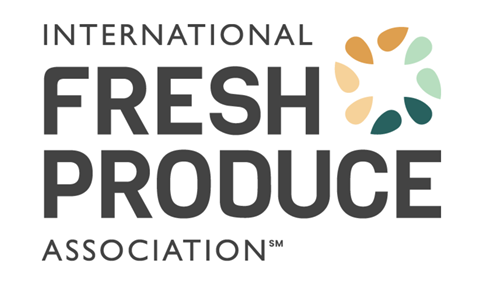
The White House incorporated a majority of IFPA’s eight “Fruit and Vegetable Moonshots” in its national nutrition blueprint and accepted IFPA’s three industry commitments.
By Lee Mannering, IFPA
Washington, DC – The International Fresh Produce Association, the largest and most diverse international association serving the entire fresh produce and floral supply chain, had a significant and impactful presence at the White House Conference on Hunger, Nutrition, and Health held today in Washington. Fruit and vegetable consumption was a central part of the day’s discussions and at the core of the Administration’s new national strategy on hunger, nutrition, and health released this week
“President Biden sent a clear message at today’s bipartisan White House Conference that food and its connection to health are a national priority. It is a precedent-setting moment for our country. For the first time in more than 50 years, we’re taking a systems-wide approach by acknowledging and meaningfully addressing our diet-related health crisis,” said IFPA CEO Cathy Burns, who attended the conference with IFPA Vice President of Nutrition & Health Mollie Van Lieu.
“Seeing our fruit and vegetable moonshot recommendations represented in the nutrition blueprint is a powerful step forward for our industry,” added Burns. “Now it’s time for the industry to continue the work to make these policies a reality and produce healthcare outcomes for every American and across the globe. We are ready.”
In July, IFPA released its Fruit and Vegetable Moonshot, an 8-point plan on a national nutrition strategy, for the White House’s consideration. The final strategy released by President Biden this week incorporates a majority of IFPA’s policy recommendations including:
1. Produce prescriptions and financial incentives for all Americans. The plan calls for “Food is medicine” interventions—including medically tailored meals and groceries as well as produce prescriptions.
2. Increased access to nutrition-related services through private insurance and federal programs beyond Medicare and Medicaid.
3. More transparent labeling to quickly and easily communicate nutrition information.
4. Expanded incentives for fruits and vegetables in SNAP.
5. Updates to nutrition criteria in USDA Foods procurement specifications.
6. A coordinated federal vision for advancing nutrition science.
“Ending hunger and reducing diet related disease by 2030 requires scalable policy,” said Van Lieu. “Today’s conference and blueprint puts the nation on a clear path to improved dietary quality and in turn healthier lives. That’s in no small part to the decades of advocacy of our industry and to the bold Fruit and Vegetable Moonshot we delivered to the White House this summer.”
Burns and Van Lieu both gave voice to the fresh produce industry at the conference, participating in discussions and engaging other food industry groups and advocates in conversations on nutrition, food insecurity, and food safety.
In addition to the Fruit and Vegetable Moonshot, IFPA made several industry commitments ahead of the event that could contribute to the overall goals of the conference but fall outside the purview of the federal government’s capabilities. Today, the White House announced its support for industry commitments, including all three put forth by IFPA:
1. Launch a new public database in 2023 called Produce in the Public Interest to house and disseminate research about fruit and vegetable consumption with a focus on identifying and mitigating barriers to improving national eating habits;
2. Produce and disseminate culturally-informed, consumer-friendly resources to improve the public’s nutrition literacy; and
3. Facilitate a public-private partnership with the Partnership for a Healthier America, Indianapolis, and Denver to double residents’ consumption of fruits and vegetables by 2030 – then using lessons learned as a model to move to additional cities.
“Fresh produce improves lives, but people aren’t eating enough of it. Our job at IFPA is to clear a pathway for more produce in people’s lives, from cultivating personal curiosity to advocating public policy,” said Burns. “Our moonshots, our commitments, and our leadership at the White House Conference are solidifying IFPA’s position in Washington as an impactful champion for fresh produce and for all Americans.”
IFPA was also proud to provide all of the produce for conference attendees.
The White House Conference caps off a busy week for IFPA, which held its Washington Conference September 26-28. More than 400 association members came to town for educational sessions and hundreds of meetings with Hill offices, agencies, and embassies where they advocated for robust nutrition policy, among other priorities. As part of that event, IFPA released its first economic impact study, which evaluates fresh produce’s multi-billion-dollar-role role in the United States economy and nationwide employment. USDA Secretary Tom Vilsack, Senator John Boozman (R-SD), and Representative Dan Newhouse (R-WA), among other policy leaders, addressed IFPA members at the conference.








